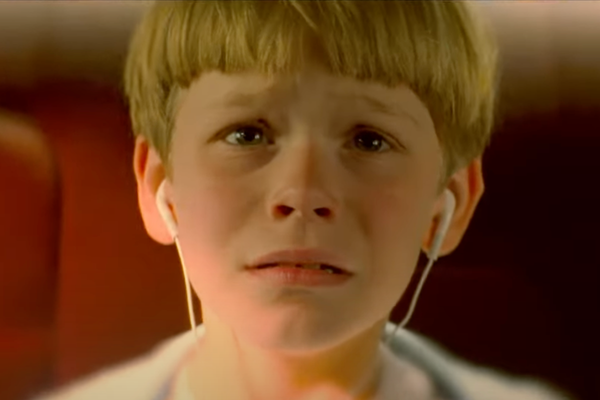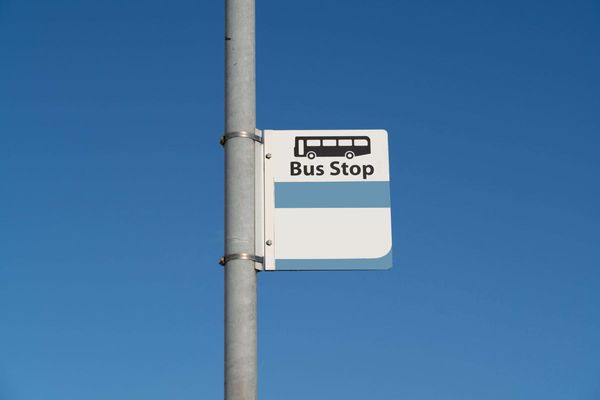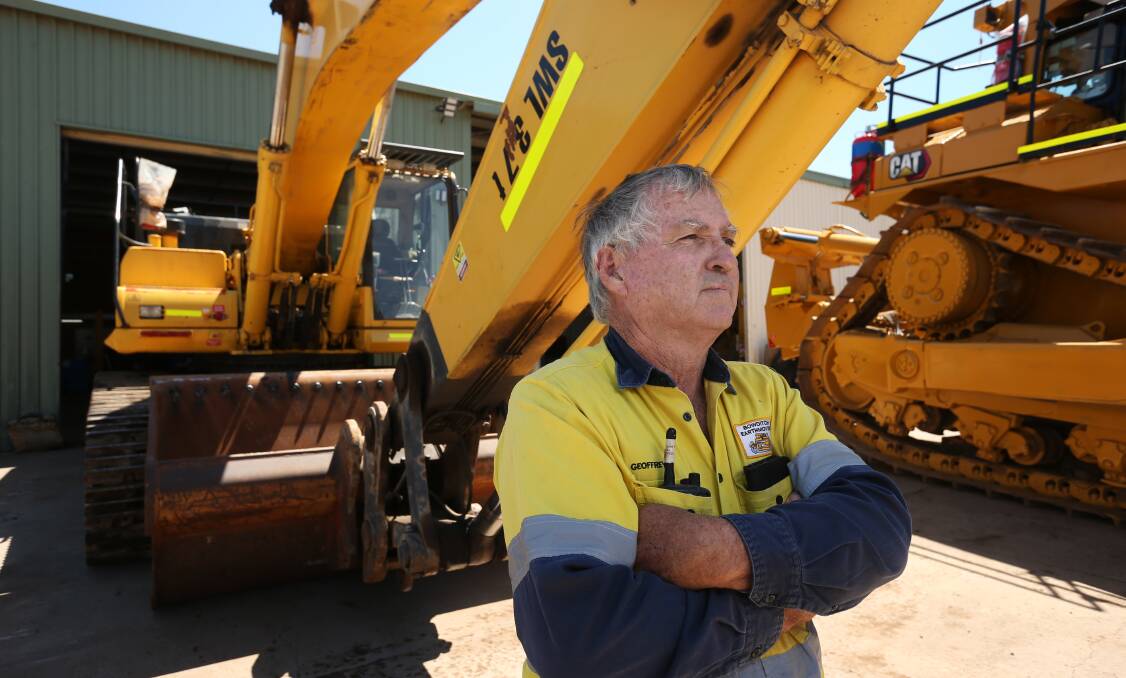
GEOFF Bowditch started his earthmoving business on the outskirts of Muswellbrook 35 years ago.
Today he employs 50 people who work on mining projects across the Upper Hunter.
He's survived the bad times and made the most of the good times. He sums up his business philosophy as "facts not fantasy".
"I run my business on facts, if it was the other way around I'd be in trouble," he says as he watches two apprentices manoeuvre a giant excavator across his workshop yard.
But when it comes to climate and energy policy, he believes social media has allowed fantasy to dominate the debate.
"Yes, I'm very concerned about it," Mr Bowditch said.
"But what are you going to do? Push back and make lots of noise or are you going to pull your boots on and go to work."
"Net zero is ridiculous and the renewable position will ultimately fail."
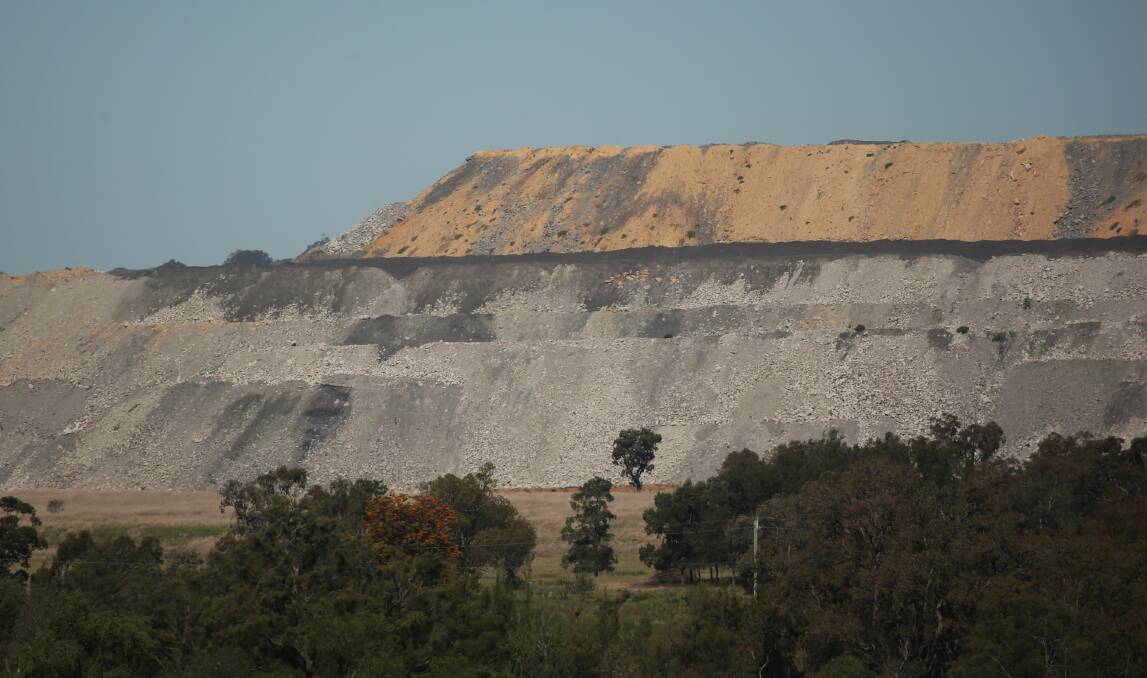
Locals like Geoff Bowditch may not spend hours venting their views on social media, instead they tend to wait for their turn at the ballot box.
Retiring long-standing Hunter MP Joel Fitzgibbon suffered an unprecedented swing against him at the last federal election courtesy of Upper Hunter residents keen to share their disapproval of Labor's ambitious climate change policies.
Many in the region feel the same way about the Glasgow climate talks.
While world leaders pledge deeper and faster emissions, locals wonder if their livelihoods and communities will become collateral damage in the political push for more ambitious climate policies.
That is despite NSW Minerals Council figures showing mining companies directly injected $6.2 billion into the Hunter economy last financial year, supporting over 13,000 Hunter mining jobs and over 3400 local mining supplier businesses.
In the beer garden of the Muswellbrook Hotel, Martin Purcell and a few mates contemplate their world without mining.
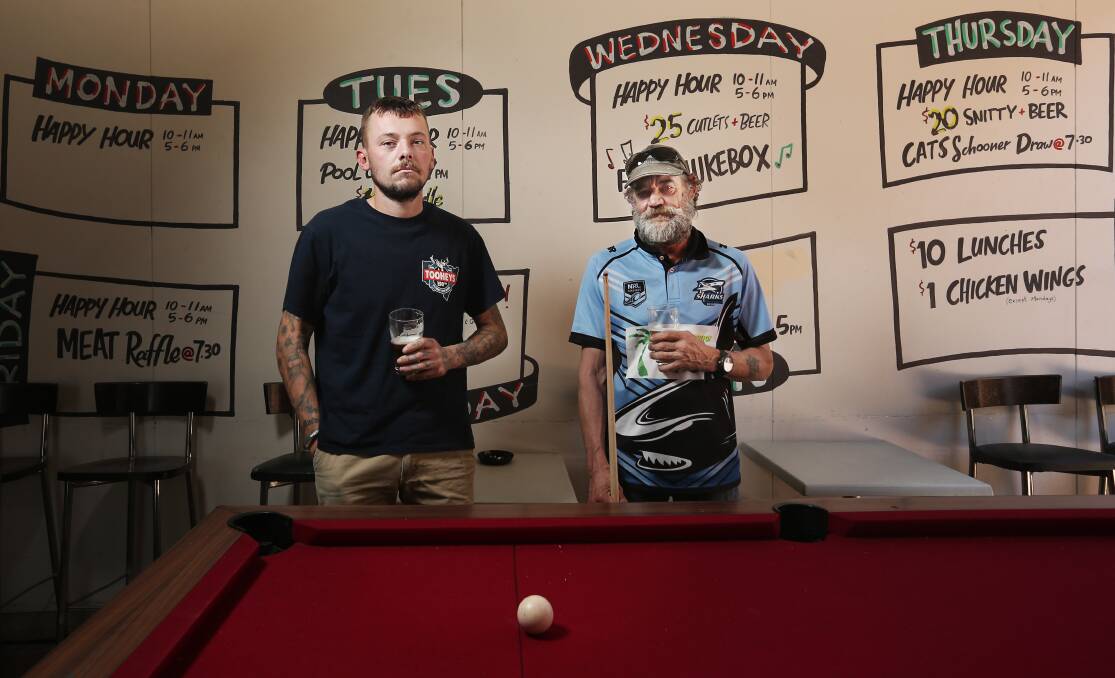
Like generations before him, the coal industry has provided well paid, stable employment since he left school.
His frustration at what he sees as kowtowing by Australian politicians to the green lobby is palpable.
"Why are we even worried about it (Glasgow)," Mr Purcell, a plant mechanic, asks.
"It's like a military conflict that we are getting dragged into.
"Australia needs to wake up to itself instead of trying to appease the Americans and everyone in Europe."
"The government is making lots of money out of coal. Let's keep mining it."
Five minutes away, the bustle of Muswellbrook Marketplace embodies the economic prosperity that mining has brought to the regional centre in recent decades.
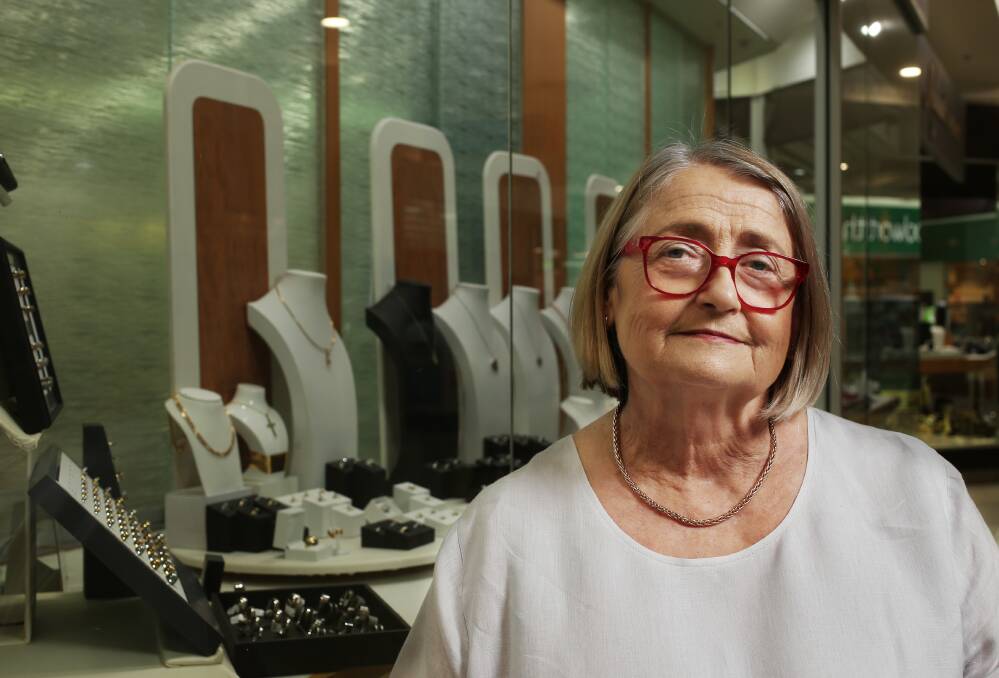
Businesswoman Lorraine Skinner acknowledges that she and many others have done well off the back of the fossil fuel industry for a long time.
But she says a growing body of climate science can't be ignored and residents and economies will need to adjust.
"The climate has always changed, wet years, cold years, but it just seems so extreme now," she said.
"The drought that we just went through was horrific."
She points out that while one of her sons works in mining, the other has started a solar business in Tamworth.
"Everything is changing, I don't think we can go on the way we have. It might not suit everybody because we have had a pretty good lifestyle over the past 40 or 50 years on the back of mining.
Everything is changing, I don't think we can go on the way we have. It might not suit everybody because we have had a pretty good lifestyle over the past 40 or 50 years on the back of mining.
Lorraine Skinner
The tension between economic prosperity and the environment isn't lost on 20-year-old Singleton resident Charlotte Burden.
Like many younger people in the Hunter she is passionate about the need to act on climate change. But she also acknowledges the stability that growing up in a family supported by the mining industry gave her.
It's a balance she says that is often lost on her university peers at Sydney's University of Technology.
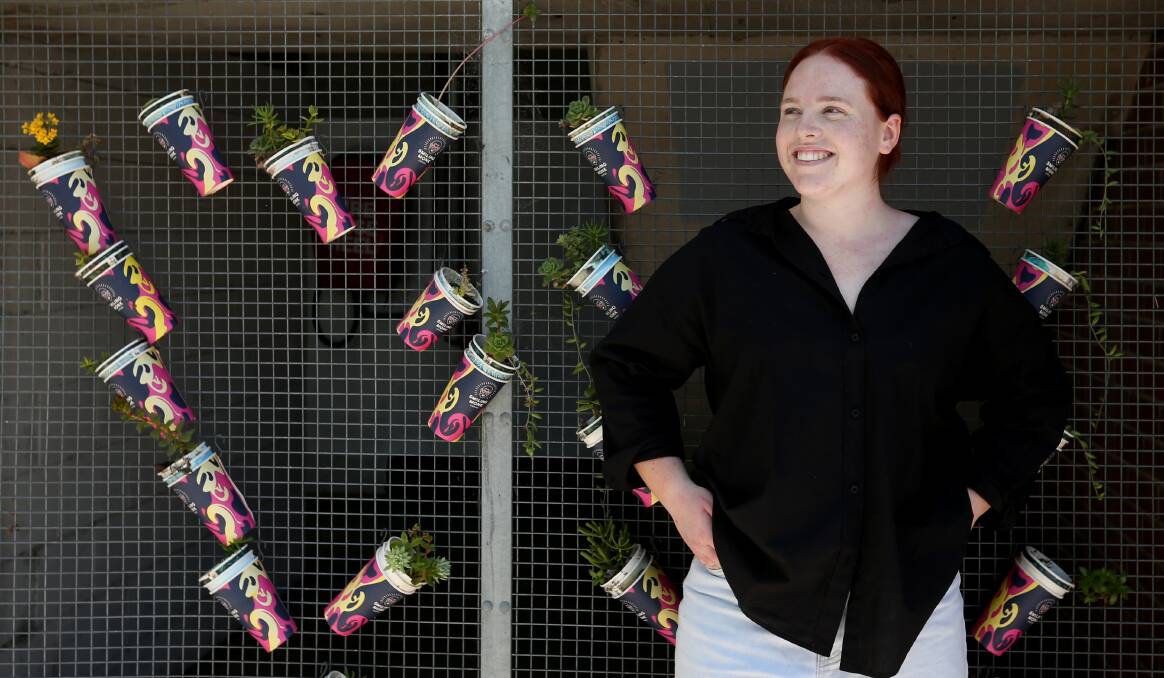
"When I'm at uni everyone has an opinion about climate change; it's fanatical," she said.
"Up here people still think it's important but they also know they have to protect their livelihoods, they respect the fact they live in a mining town."
Census figures show about 75 per cent of Muswellbrook's population of 16,000 is in some way dependent on the mining and power generation industries.
"If those industries closed suddenly those people would either have to move somewhere else, stay here on some sort of government support or in the longer term transition to some sort of other industry but what that is isn't yet apparent," Chamber of Commerce president Mike Kelly says.
The chamber doesn't have a formal position on net zero by 2050, but Mr Kelly acknowledges the target will inevitably influence the town's economic evolution in coming decades.
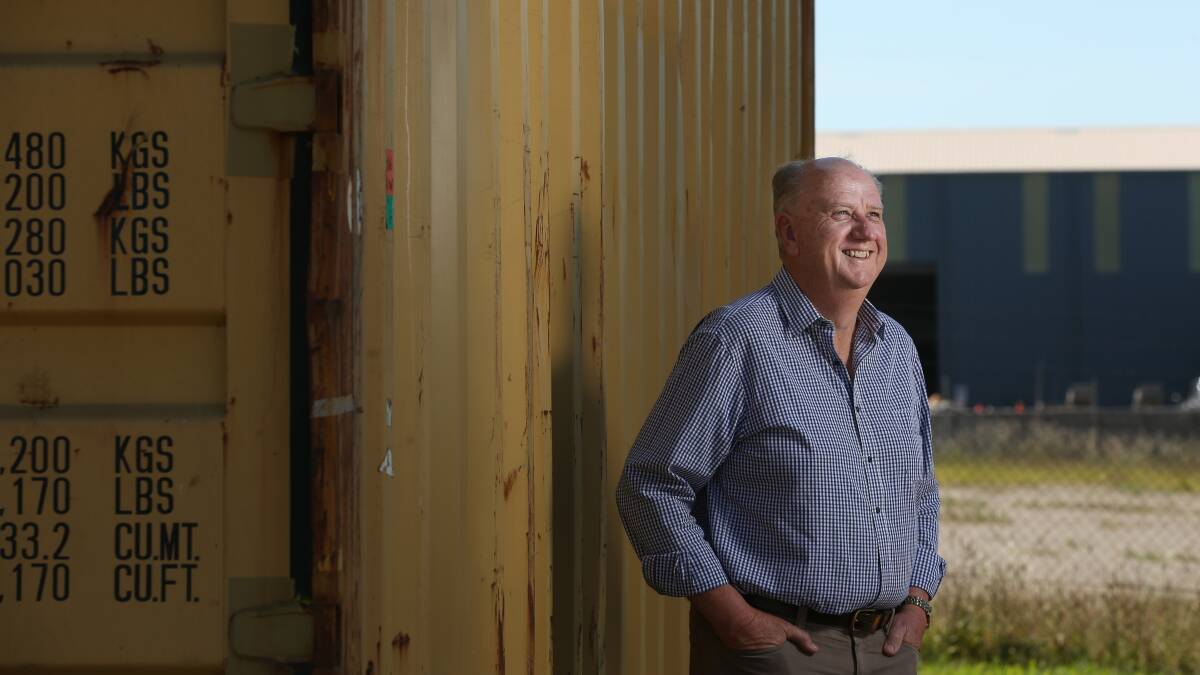
"It's a government policy, we just have to recognise it as part of the landscape. It doesn't matter if we support it or disagree with it, it's done," he said.
"Most countries around the world are doing what they can afford and so should we. But disregarding economic imperatives for the sake of the environmental or philosophical imperatives doesn't make sense."
Change might be inevitable but, as yet, Mr Kelly says he is yet to see another industry with the potential to deliver the same economic prosperity as mining and power generation.
"We see all of the activity [associated with coal and power generation] then we see the transition of Liddell, we see plans for pumped hydro at Bells Mountain, a biodiesel plant up the road and smart manufacturing of various types," he said.
"But none of them are putting out a prospectus that would convince us there is going to be substantial employment longevity. They are largely research projects. They are not delivering a return now and it is debatable what their eventual return will be and when it is going to happen."
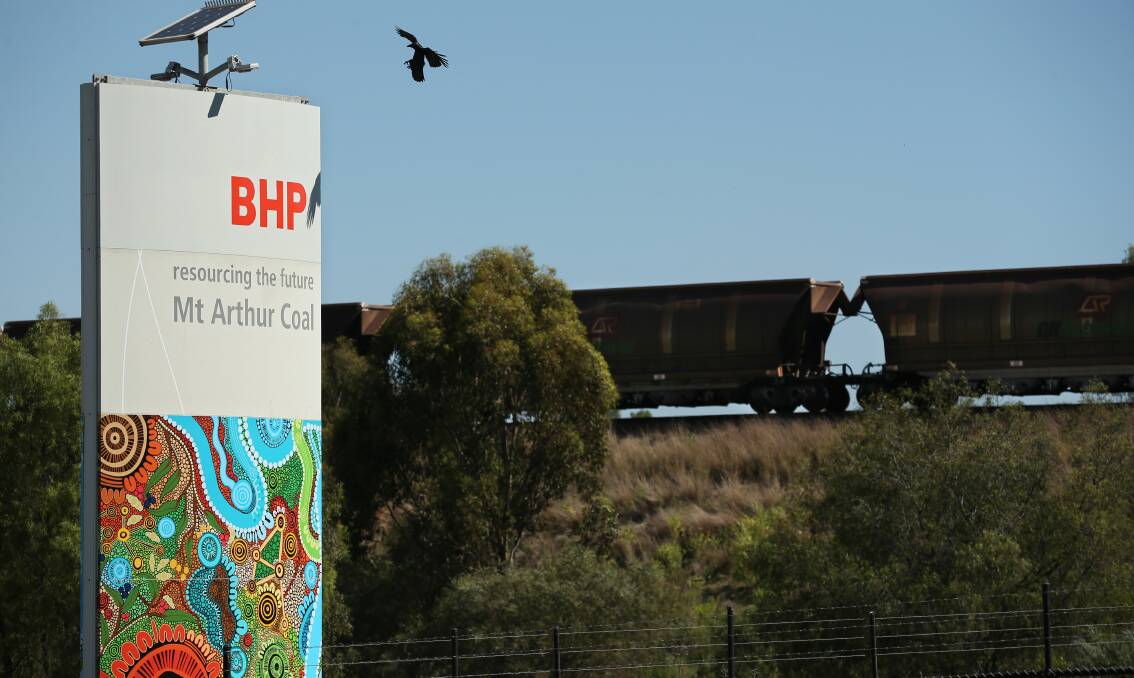
That skepticism is reflected in the State Government-commissioned Upper Hunter Futures report.
The Deloitte report warns the region's economic future is "highly uncertain" and recommends urgent action to avoid the worst social and economic impacts of the coal market's decline.
If managed well, communities in the Dungog, Singleton, Muswellbrook and Upper Hunter Shire local government areas stand to capitalise on significant opportunities to improve social equity in areas such as housing, transport and community services and renewable energy generation.
"The economic future of the Upper Hunter is highly uncertain and could follow a number of different pathways based on global, national and local trends and disrupters," the report says.
Singleton mayor Sue Moore says she isn't concerned that the region's mining industry will collapse in the short term and points out that some mines have extensions for another two decades.
But she acknowledges that many residents are concerned about the potential personal implications of transition.
"I get the feeling that people in Singleton appreciate that change is coming and they have to be prepared for it. But in saying that, they want to understand what it means for them and their jobs," she said.
While the federal government's Net Zero 2050 commitment might be attracting national headlines, Ms Moore said it was imperative that the government explained to communities like hers how that goal will be achieved.
"I know the agriculture sector is concerned about what it is going to mean for them even with the reduced targets of 50 per cent," she said.
"It would be really great to understand what the plans are now rather than later.
"The Prime Minister has indicated that will come in time. People would like to know now and what he is going to Glasgow with. What it might mean to their incomes, their jobs and ultimately the price of food on the table."


